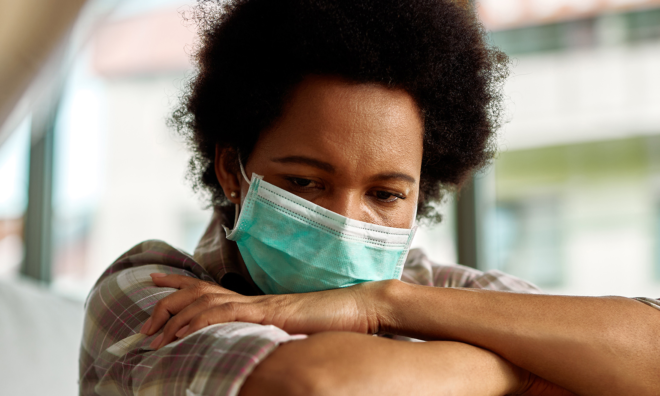
In 2020, a lot changed; a national pandemic strung due to Coronavirus. This led to the world undergoing a lockdown. Almost everything shut down, and everyone had to be quarantined. This had a major impact on many lives. As I begin to talk about how teenagers were impacted due to this lockdown; my goal is for you to realize how serious this disorder really is.

Studies have shown that from ages 13-18, nearly 1 in 3 teenagers will experience an anxiety disorder. Anxiety is a feeling of uneasiness, worry, dread, and fear. It can be a normal reaction to stress and may cause symptoms such as feeling tense, nervous, weak, and tired. Anxiety can also increase your heart rate and may cause heavy breathing (hyperventilation.)
There are many different types of anxiety disorders. Healthline’s article states a variety. Some are stated below:
- “Panic disorder: experiencing recurring panic attacks at unexpected times. A person with panic disorder may live in fear of the next panic attack.
- Phobia: excessive fear of a specific object, situation, or activity. Social anxiety disorder: extreme fear of being judged by others in social situations.
- Obsessive-compulsive disorder: recurring irrational thoughts that lead you to perform specific, repeated behaviors separation.
- Anxiety disorder: fear of being away from home or loved one’s. Illness anxiety disorder: anxiety about your health (formerly called hypochondria.)
- Post-traumatic stress disorder (PTSD): anxiety following a traumatic event.” You may click on any of the disorders to learn more about them.

Now, teenagers’ emotions are all over the place. This comes naturally as they are transitioning to adulthood. Teenagers need to be around people who relate to them and can understand them. Friends, family, people they can open up to and socialize with is a key factor in keeping their mental health stable.
A common thing that happens with teens is they feel like their parents are always against them, constantly trying to punish them, and overstepping. Because of this, teens shut their parents out. They don’t talk to them willingly, just the bare minimum.
Suddenly, bam. They became secluded in their own bubble, alone, at the point of their life where they struggle most. 34% more teens have developed an anxiety disorder.
I believe that parents were poorly educated about recognizing the signs of an anxiety disorder with their kids. Teens may act out, perform poorly in school, skip social events, and even engage in substance or alcohol use. Once covid happened and things got worse, I believe parents should have been reminded of these symptoms and make sure to monitor their children; always offering support as well.
As a teenager who has been through and lived with the lockdown, it really has taken a toll on my mental health. I have experienced a major lack of motivation and a constant feeling of worry. I spoke with my school counselor, and she said that I wasn’t the only one. It kept me from feeling relieved, even though I was keeping up with school work and more. I have never experienced anything like this, so I imagine other teenagers can relate to how I felt.
Nadeen Sabra, an 8th grade friend of mine who has also struggled with being in lockdown says, “It was supposed to be a two-week thing. It was supposed to be something fun. It has ruined my mental health and made me weaker each day.”

In conclusion, this is not some “phase” that your child will get over. This is a real and frightening disorder that needs to be recognized. This is something that requires both support and consistent treatment such as therapy, support groups,anti-anxiety medication, and more. Anxiety in teenagers is only rising. Do something about it before it’s too late.
Jenna Chour
8th grade Journalism